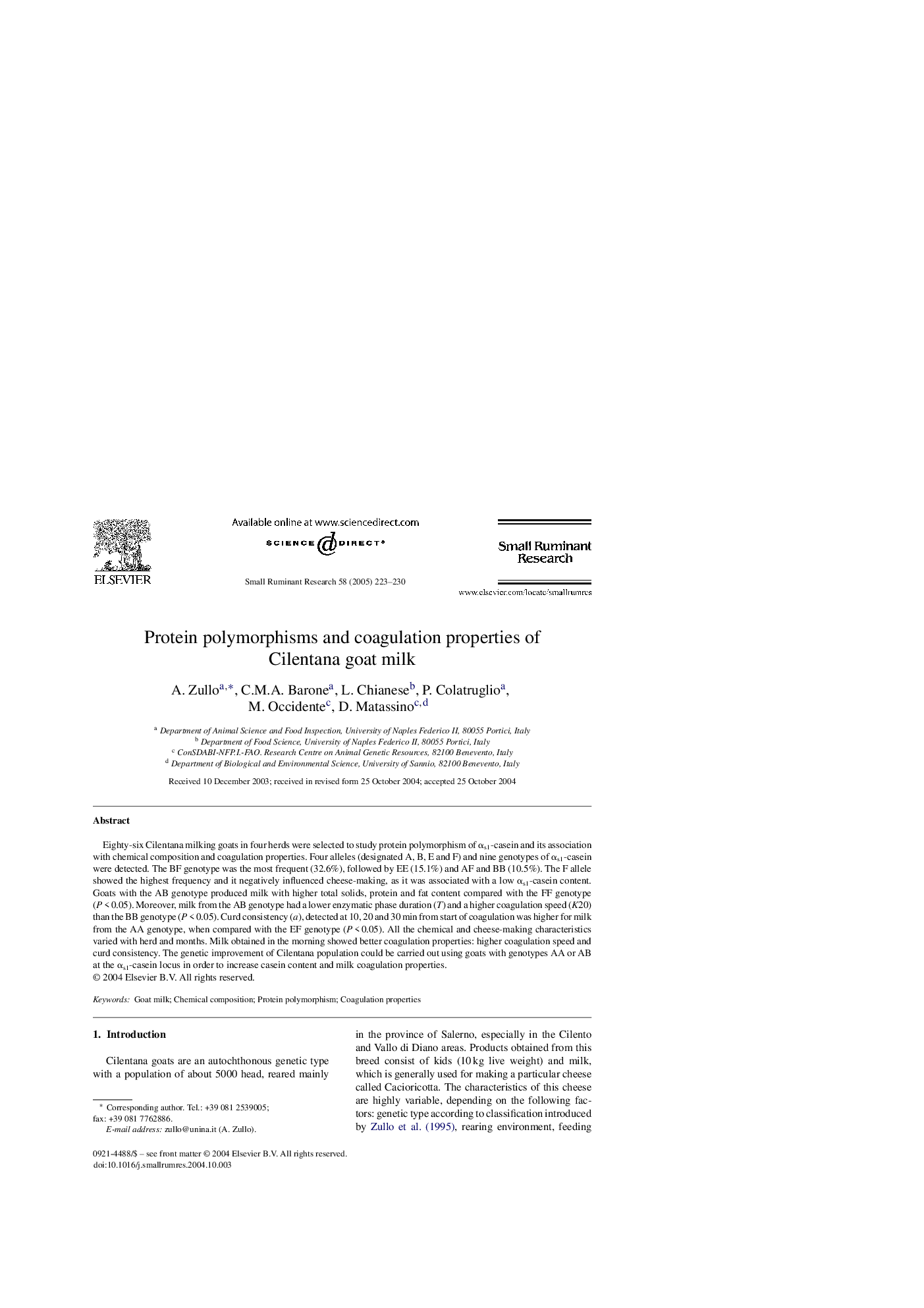| Article ID | Journal | Published Year | Pages | File Type |
|---|---|---|---|---|
| 8987036 | Small Ruminant Research | 2005 | 8 Pages |
Abstract
Eighty-six Cilentana milking goats in four herds were selected to study protein polymorphism of αs1-casein and its association with chemical composition and coagulation properties. Four alleles (designated A, B, E and F) and nine genotypes of αs1-casein were detected. The BF genotype was the most frequent (32.6%), followed by EE (15.1%) and AF and BB (10.5%). The F allele showed the highest frequency and it negatively influenced cheese-making, as it was associated with a low αs1-casein content. Goats with the AB genotype produced milk with higher total solids, protein and fat content compared with the FF genotype (P < 0.05). Moreover, milk from the AB genotype had a lower enzymatic phase duration (T) and a higher coagulation speed (K20) than the BB genotype (P < 0.05). Curd consistency (a), detected at 10, 20 and 30 min from start of coagulation was higher for milk from the AA genotype, when compared with the EF genotype (P < 0.05). All the chemical and cheese-making characteristics varied with herd and months. Milk obtained in the morning showed better coagulation properties: higher coagulation speed and curd consistency. The genetic improvement of Cilentana population could be carried out using goats with genotypes AA or AB at the αs1-casein locus in order to increase casein content and milk coagulation properties.
Related Topics
Life Sciences
Agricultural and Biological Sciences
Animal Science and Zoology
Authors
A. Zullo, C.M.A. Barone, L. Chianese, P. Colatruglio, M. Occidente, D. Matassino,
